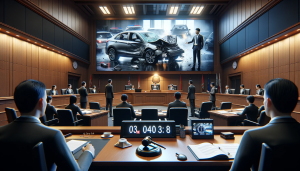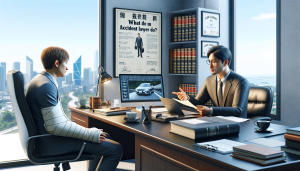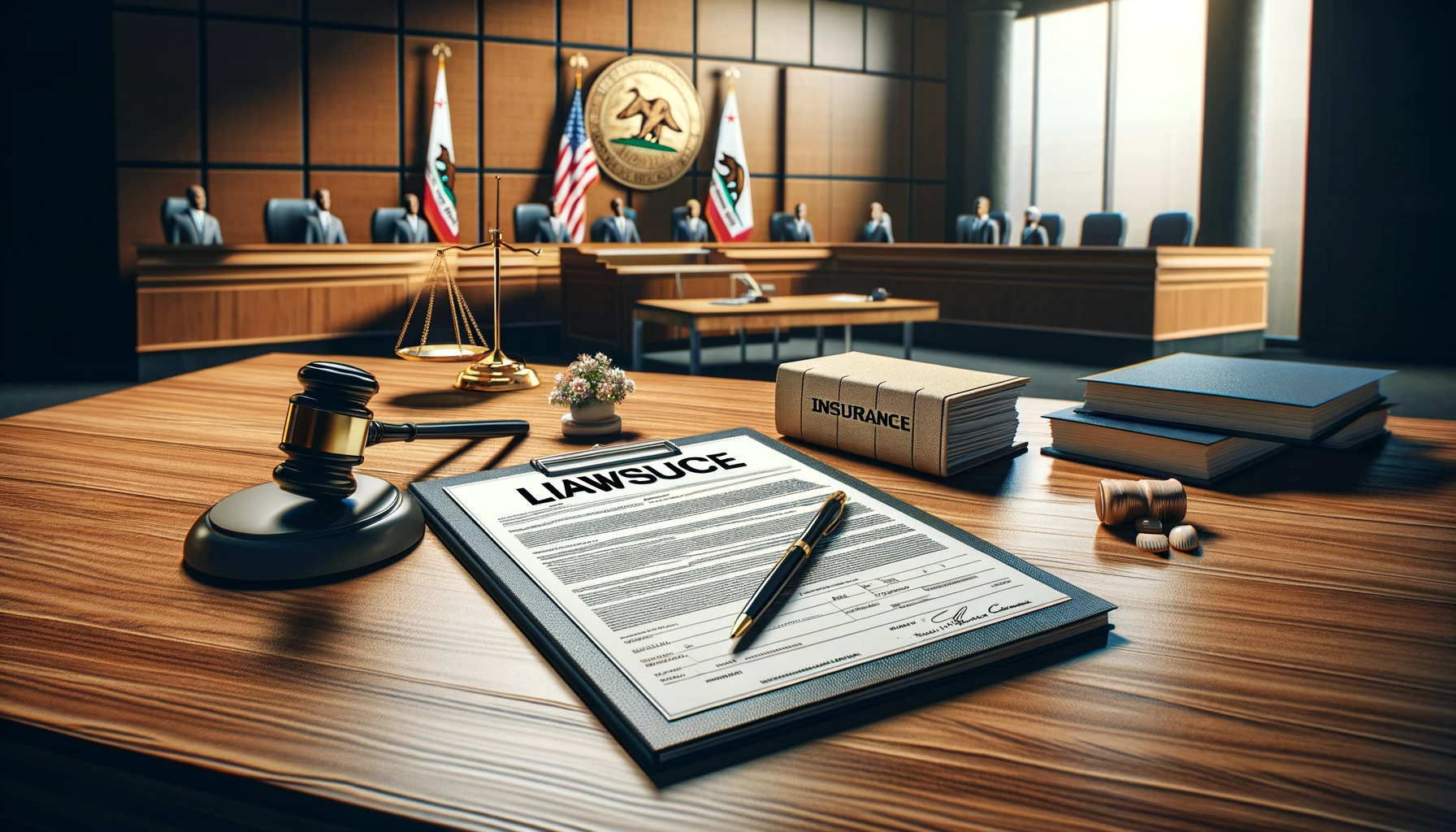Unraveling the Truth: Using Legal Resources to Prove Your Innocence in a Car Accident
Introduction
Being involved in a
car accident is stressful, but proving your innocence can be even more daunting. Whether it's a minor fender bender or a major collision, the stakes are high when it comes to clearing your name. This article will guide you through the legal resources available to help prove your innocence, ensuring that you have the tools and knowledge needed to navigate this challenging process.
Understanding the Legal Framework
Fault vs. No-Fault States
One of the first things to understand is whether you live in a fault or no-fault state. In fault states, the driver who is found to be at fault for the accident is responsible for the damages. In no-fault states, each driver's insurance covers their own damages, regardless of who is at fault. Knowing the legal framework in your state is crucial as it affects how you approach your case.

Liability refers to legal responsibility, and in
car accidents, it usually hinges on proving negligence. If you can demonstrate that the other driver was negligent—by speeding, texting, or failing to yield—you may be able to prove that you were not at fault. Understanding how liability is determined will help you build a stronger case.
Collecting Evidence at the Scene
Importance of Immediate Documentation
The evidence you gather immediately after the accident can make or break your case. Start by documenting the scene as thoroughly as possible. This includes everything from the positions of the vehicles to the road conditions and traffic signs.
Photographs and Videos
Photographs and videos are powerful pieces of evidence. Capture images of the vehicles, any visible
injuries, skid marks, and other relevant details. Video footage can provide a comprehensive view of the accident scene, offering a timeline of events that can be invaluable in court.
Witness Statements
Witnesses can offer an unbiased perspective on what happened. Get the contact information of anyone who saw the accident, and ask them to provide a statement. These statements can be critical in corroborating your version of events.
Utilizing Police Reports
How Police Reports Are Used in Court
A police report is often one of the first pieces of evidence considered in an accident case. It includes the officer’s observations, witness statements, and sometimes, the officer’s opinion on who was at fault. This report can carry significant weight in court.
Ensuring Accuracy in the Report
Make sure the police report is accurate by reviewing it as soon as it's available. If you notice any errors or omissions, address them immediately. An accurate report can significantly bolster your case, while inaccuracies can create challenges.
Medical Records as Evidence
Linking Injuries to the Accident
If you were injured in the accident, your medical records could serve as key evidence. These records can link your
injuries directly to the accident, helping to prove that you were not at fault. Ensure that your medical documentation is thorough and complete.
Obtaining and Preserving Medical Records
Keep copies of all your medical records, including doctor’s notes, prescriptions, and treatment plans. These documents not only support your case but also help in negotiating with insurance companies.
Working with an Attorney
Importance of Legal Representation
Navigating the legal system on your own can be overwhelming, especially when trying to prove your innocence. A skilled attorney can help you understand your rights, gather evidence, and present a compelling case in court.
Selecting the Right Attorney for Your Case
Choose an attorney who specializes in
car accidents and has a proven track record of success. The right lawyer will know the intricacies of accident law and will be able to guide you through the process with confidence.
Expert Witnesses
The Role of Accident Reconstructionists
In complex cases, accident reconstructionists can be invaluable. These experts analyze the evidence to recreate the accident, providing insights that can clarify how the collision occurred. Their testimony can be crucial in proving your innocence.
Medical Experts and Their Impact
Medical experts can testify about the extent and cause of your
injuries, linking them directly to the accident. Their professional opinion can carry significant weight in court, especially when the other party disputes the severity of your
injuries.
Navigating Insurance Claims
Dealing with Your Insurance Company
Insurance companies often look for ways to minimize their payouts. Be cautious when dealing with your own insurance provider, and avoid making statements that could be used against you later. It's often beneficial to have your attorney handle communications on your behalf.
Handling the Other Party’s Insurance
The other driver’s insurance company may attempt to shift the blame onto you. Be prepared to defend your case with the evidence you’ve gathered, and don't hesitate to let your attorney take the lead in these negotiations.
Preparing for Court
Understanding the Court Process
Going to court can be intimidating, but understanding the process can alleviate some of the anxiety. Your case will likely involve presenting evidence, questioning witnesses, and making legal arguments. Knowing what to expect will help you stay calm and focused.
Presenting Your Case Effectively
Your attorney will play a crucial role in presenting your case, but you also need to be prepared. Be honest and clear in your testimony, and make sure all your evidence is organized and readily accessible. A well-prepared case stands a better chance of success.
The Role of Technology in Proving Innocence
Dashcam Footage and GPS Data
Technology can be your ally in proving your innocence. Dashcam footage can provide an unbiased account of the accident, while GPS data can show your exact location and speed at the time of the collision. Both can be compelling evidence in court.
Using Smartphone Data
Smartphones can record a surprising amount of data, from text messages to location history. This data can sometimes be used to prove that you were not distracted or that you were in a different location at the time of the accident.
Common Challenges in Proving Innocence
Overcoming Biased Testimonies
Sometimes, witnesses may be biased or misinformed. If a witness gives a statement that contradicts your version of events, it can be challenging to overcome. Your attorney may need to cross-examine the witness to expose any inconsistencies or biases.
Dealing with Uncooperative Witnesses
Not all witnesses are willing to cooperate. Some may refuse to provide a statement or testify in court. In such cases, your attorney can issue a subpoena to compel their testimony, ensuring that their account is heard.

Alternative Dispute Resolution
Mediation and Arbitration as Alternatives to Court
Not all cases need to go to court. Mediation and arbitration offer alternative ways to resolve disputes. These processes can be quicker and less stressful than a trial, and they often result in a fair settlement.
Benefits and Drawbacks
While alternative dispute resolution can be beneficial, it's not always the best option. Mediation and arbitration may result in a less favorable outcome if the other party is uncooperative or if the evidence strongly supports your innocence. Weigh the pros and cons with your attorney before deciding on this route.
Conclusion
Proving your innocence in a
car accident can be a complex and stressful process, but with the right legal resources, it’s entirely possible. By gathering evidence, working with skilled professionals, and understanding the legal framework, you can build a strong case that demonstrates your lack of fault. Remember, the key is preparation—being thorough and diligent every step of the way will increase your chances of a fair outcome.
Look for an attorney who has the right legal resources for your legal needs.
Contact us here on the
Warmuth Law website or through our hotline 888-517-9888.
Frequently Asked Questions (FAQ's)
1. What should I do immediately after a car accident?
After ensuring everyone's safety, document the scene, take photos, collect witness information, and contact the police to file a report.
2. How can I ensure my police report is accurate?
Review the report as soon as it’s available and request any necessary corrections. Providing accurate and clear information to the officer at the scene also helps.
3. What if my insurance company denies my claim?
If your claim is denied, you can appeal the decision. It’s wise to consult with an attorney to guide you through the appeal process and explore your options.
4. Do I need an attorney even if I’m not at fault?
Yes, having an attorney can be crucial in protecting your rights and ensuring that you receive fair treatment throughout the legal process.
5. Can I use dashcam footage as evidence in court?
Absolutely. Dashcam footage is often admissible in court and can provide compelling evidence to support your case.













